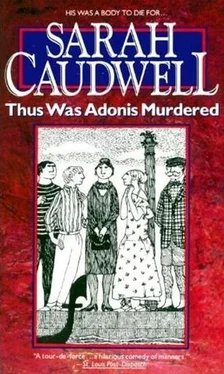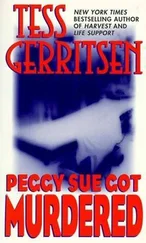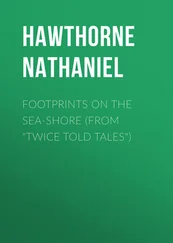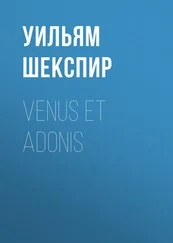With the palaces along the Grand Canal there is no such ambiguity. They, one does not doubt for a moment, were built entirely to the greater glory of their owners, in a single-minded spirit of keeping up with the Foscari. If one facade has two tiers of columns and carved stonework, the one next to it has three; the one opposite has columns even more delicate; the stonework of the next is pierced and drawn in a still more intricate embroidery. So that one almost expects, seeing them reflected in the water, to find there too some further embellishment.
I experienced, as we travelled through this great corridor of mirrors, the emotion I had last felt during the transformation scene of the pantomime, when taken to it, at the age of seven, by my maternal grandmother. She took me again when I was eight, for my maternal grandmother was always very kind to me; but by then I was less easily impressed. The pleasure was one, therefore, that I had not looked to feel again.
Turning off to the right somewhere after the Accademia Bridge, we disembarked at the landing stage of the Cytherea.
“Signore, signori,” said Graziella, “dinner will be at eight o’clock. If you will come to see me before then in the reception area, I will explain to you about our excursions. You have plenty of time to wash and repose yourselves; but dress is quite informal.” She glanced at me, however, in a way which suggested that the management of the Cytherea, broad-minded though it might be, would prefer to draw the line at mud-stained trousers and a blood-spattered shirt.
We retired, as instructed, to wash and repose ourselves. I directed my mind, while so engaged, to the subject of the beautiful young man, lamenting once more the absence of your own always admirable counsel. Deprived of it in fact, I sought it in hypothesis: “If Selena were here,” I asked myself, “what would she advise?”
I answered without hesitation that you would recommend a pragmatic approach: not to base my plans on some theoretical first principle, but to examine the situation as it was and see what advantage could be taken of it.
This naturally led me to think of canals. We were in a city full of canals. How could this circumstance be turned to my advantage? One possibility would be to fall into one and be rescued by the beautiful young man. That, I thought, would surely lead to something. There was, however, a flaw in this scheme: I might fall into a canal, but the young man might not rescue me.
Another possibility would be for the young man to fall into one and be rescued by me. That seemed even more certain to lead to something. But I saw that this scheme also was by no means foolproof. The only way of ensuring that he fell into a canal would be to push him into it: unless this could be done with extraordinary discretion, the enterprise might well prove self-defeating. Nor was I entirely confident that once I had got him into the canal I would be able to get him out of it again.
“Timothy,” said Selena, “Cantrip did say ‘stabbed’, didn’t he?”
“Oh yes,” said Timothy, “‘stabbed’ was certainly the word.”
To be perfectly candid, Selena, I was not wholeheartedly enthusiastic about any plan involving my immersion in a canal. Though beautiful, they are not, at close quarters, appetizing: it seemed to me that what they would certainly lead to would be a nasty cold, complicated, possibly, by some unpleasant virus.
I concluded that you would advise me to have nothing to do with canals, but to concentrate on the opportunities offered by the hotel itself. The Art Lovers are accommodated in an annexe, surrounded by canals on three sides and joined to the main hotel by a little bridge. On the fourth side it adjoins another building, forming part, as it were, of the same peninsula; but this has nothing to do with the Cytherea and there is no way through to it. The bridge is accordingly the only means of access. The rooms on the first floor are occupied by the Art Lovers, those on the second, apparently, by members of the hotel staff. The ground floor is used merely as a sort of entrance hall, where the chambermaids sort the linen and so forth.
I contemplated with some satisfaction the possibilities offered by this arrangement. I had only to get rid of the other Art Lovers and the hotel staff and find some means of barricading the bridge — and I should have the lovely creature entirely at my mercy, without means of escape. Unless, of course, he were to jump out of the window into the canal, in which case I would be obliged, albeit reluctantly, to revert to the plan previously mentioned. Though certain points of detail remained to be worked out, it was in a mood of some optimism that I went down to dinner.
I remembered that I had at least the benefit of your advice on general strategy. It is your view, as I understand it, that when dealing with young men one should make no admission, in the early stages, of the true nature of one’s objectives but should instead profess a deep admiration for their fine souls and splendid intellects. One is not to be discouraged, if I have understood you correctly, by the fact that they may have neither. I reminded myself, therefore, that if I could get the lovely creature into conversation, I must make no comment on the excellence of his profile and complexion but should apply myself to showing a sympathetic interest in his hopes, dreams and aspirations. Little did I know, Selena, how fearful were those dreams, how sinister those hopes, how altogether unspeakable those aspirations.
“Dear me,” said Timothy. “What can he have done?”
“It would be very helpful,” said Ragwort, “if this young man turned out to have a serious criminal record. It would make him a natural suspect for — any unpleasantness which may have occurred.”
“Most helpful, certainly,” said Selena. “Though whether Julia, in such a case, would have expressed herself in quite those terms — still, no doubt we shall see.”
The dining-room of the Cytherea occupies a corner at the junction between two canals, so that one may eat by a window looking out on one and adjourn for coffee to a terrace at the side of the other. The terrace, in fact, faces the annexe in which we are accommodated.
The management, it seemed to me, had done rather badly about the seating arrangements. They had put the beautiful young man and his travelling companion at a table with the armour-plated matron. They had put the pretty blonde girl at a table with the trapezoid young man. They had put me at a table with the Major.
“Care to join me in a bottle of plonk, m’dear?” asked the Major. The notion of joining the Major in anything was repugnant to me; but I felt I could not civilly refuse. He studied his Wine List with the furtive squint which has characterized the English abroad since the decline of the pound sterling: it comes of comparing prices while pretending to study the vintage. He suggested that the Colle Albani sounded like a decent little wine. Confirming, by a similar surreptitious glance, that it was two hundred lire less than anything else available, I concurred in his choice.
“Comfy little billet, this,” said the Major. I did not dispute it — the standards of the Cytherea seemed to me to be luxurious. “Been in worse quarters than this in my time, I can tell you, m’dear,” he continued, undiscouraged by my agreement. “I remember the troopship I went on to Tripoli in ’48—”
From this starting point, he launched adroitly into an epic of military reminiscence, beginning shortly after the Second World War and ending — no, I fear it has no ending, or, if it does, that I have not yet heard it. It included a number of anecdotes designed to illustrate the proposition that the Major had “always been a bit of a japester.” There was one, as I recall, about hijacking a tramcar in Alexandria in ’49 and another about the introduction of a goat into the nurses’ quarters in Limassol in ’52.
Читать дальше











